Moving Packages and People More Sustainably
For more than a decade, FedEx and WRI have worked together to improve public transit, quietly transforming the lives of millions of people.
Published 07-26-23
Submitted by FedEx
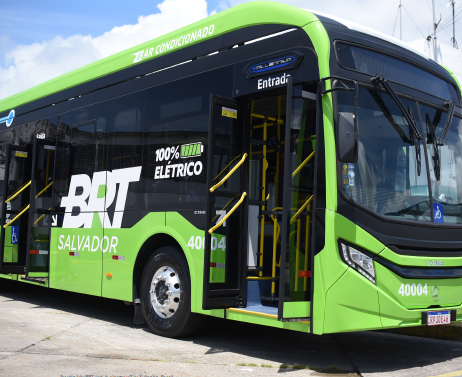
Roads are like a circulatory system for cities, moving people and goods, ideally by the most efficient means available. Unfortunately, as cities grow, streets can clog quickly with cars and trucks, impacting lives and pocketbooks.
Take the story of Suvarna Reddy, a 58-year-old grandmother in Bengaluru, India who shares a home with her son and his family. Every day, she cooks before taking her grandson to school. She then catches a bus to work, first to the main market, followed by three households where she then cooks for her living.
“It used to take over 40 minutes to get from one home to another,” she recalls. “I had to wait for a long time before I got the bus and … always feared falling when I had to stand, because the buses were unstable.”
More than 5 million passengers ride Bengaluru’s transit system daily. For people like Reddy, the bus is a lifeline.
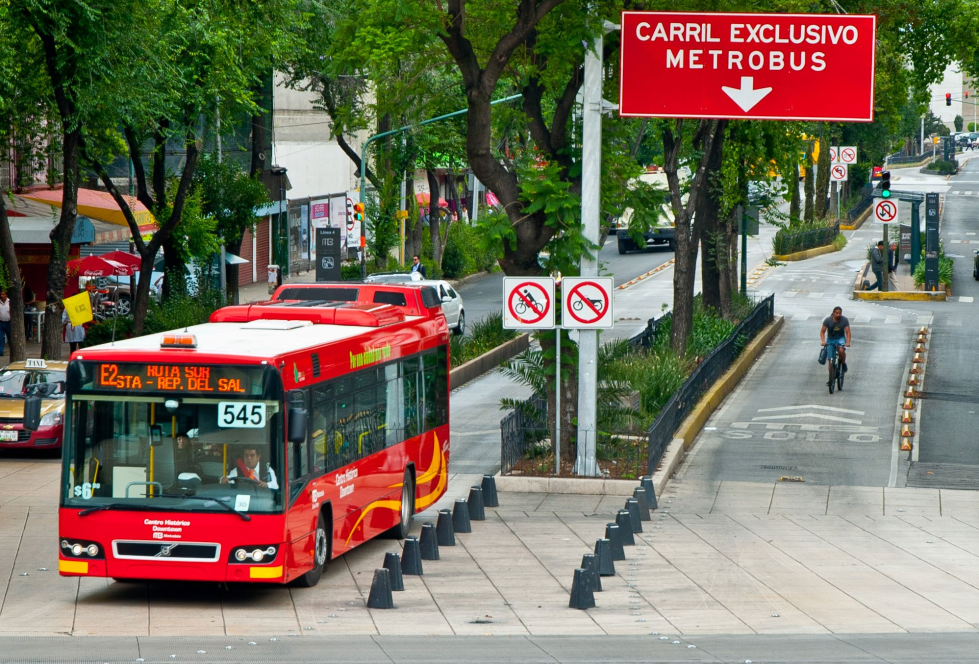
Reimagining how megacities move
In 2010, FedEx and WRI teamed up to create what is now the Mobility and Accessibility Program (MAP). MAP’s goal is to transform major public transportation systems across the world, making them safer, more efficient, and more sustainable. MAP leverages FedEx expertise in areas like vehicles, customer experience, and driver safety and merges it with WRI’s innovative research and global network.
MAP helped Bengaluru’s transit agency improve the public bus network along high-demand corridors, adding routes, services, and nearly a thousand new low-emissions vehicles.
“The new buses come every five to ten minutes,” marvels Reddy. “I don’t have to wait a long time before I get a bus to get to any of my workplaces … I get there much more comfortably and a lot faster. And that gives me more time to spend with my family.”
MAP teams are active throughout cities across Mexico, Brazil, India, and China. To date, the program has impacted more than 18 million people.
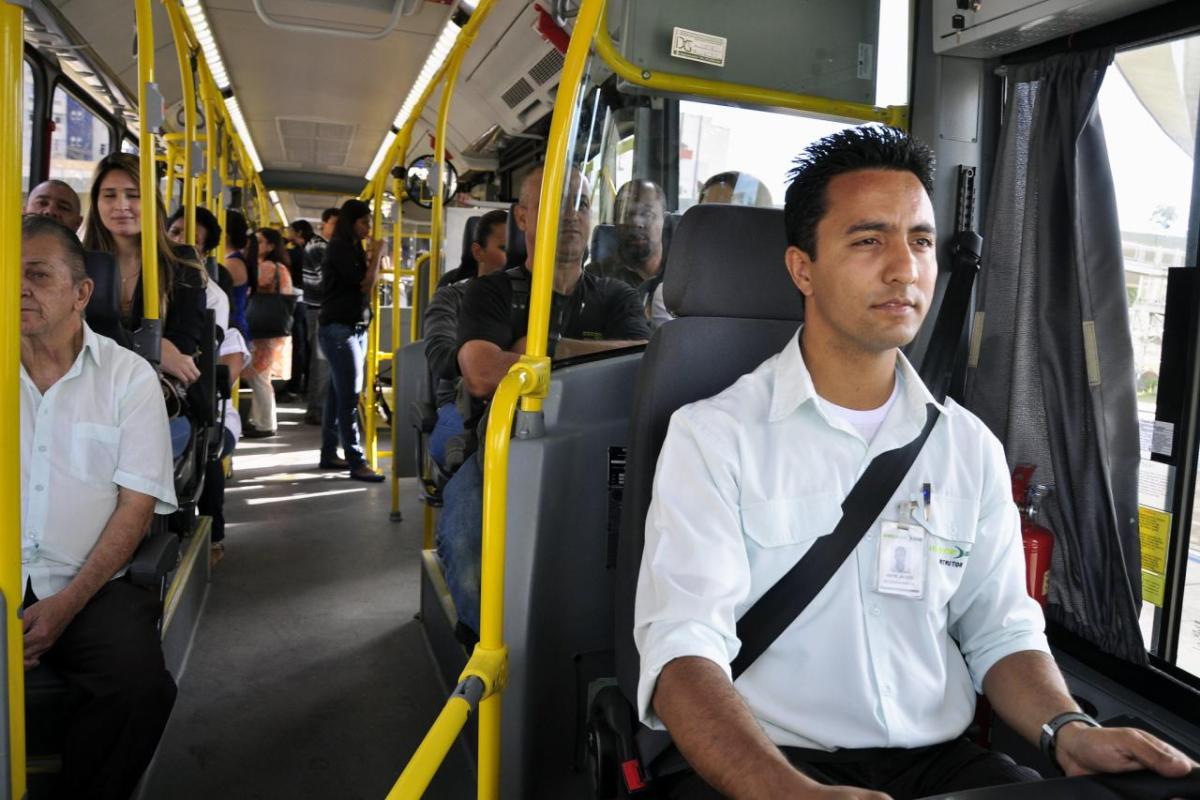
Building local expertise
WRI accomplishes its mission to create systemic change by building the expertise of transportation planners. To date, MAP has trained and engaged more than 57,000 professionals in transportation and safety, including 10,000 bus operators on “Safety First” principles to reduce accidents.
In India, MAP started Bus Karo, a peer-to-peer group sharing best practices among 63 member cities, from fleet operations to finance. In 2022, building on coordination through Bus Karo and other efforts, officials announced the procurement of more than 5,400 electric buses in Delhi, Bengaluru, Hyderabad, Kolkata, and Surat. The new e-buses are expected to reduce emissions and create an estimated 25,000 new jobs.
“FedEx support, knowledge, and guidance have played a big role in our success,” says Madhav Pai, CEO of WRI India. “Their enthusiasm has kept the flame alive in our teams. It couldn’t be more crucial at this moment when cities across India are making a major transition to electric fleets.”
Another prime example is the Mexican city of Guadalajara, which opened its newest bus rapid transit (BRT) line in 2022, serving 320,000 people a day. The MAP team was closely involved in creating this new 28-km network of bus-only lanes. With success throughout Mexico, MAP is now helping the federal government create new technical and financial support programs for mass transit. WRI has also helped establish national road safety and public transport policies while promoting better management, operation, and financing of transit systems across the country.
“We chose to work with WRI because they’re more than a think tank,” said FedEx Chief Sustainability Officer Mitch Jackson. “WRI offers not only analysis, but boots on the ground. It’s a proving ground for ideas that then get expanded—a chance to translate thought into action.”
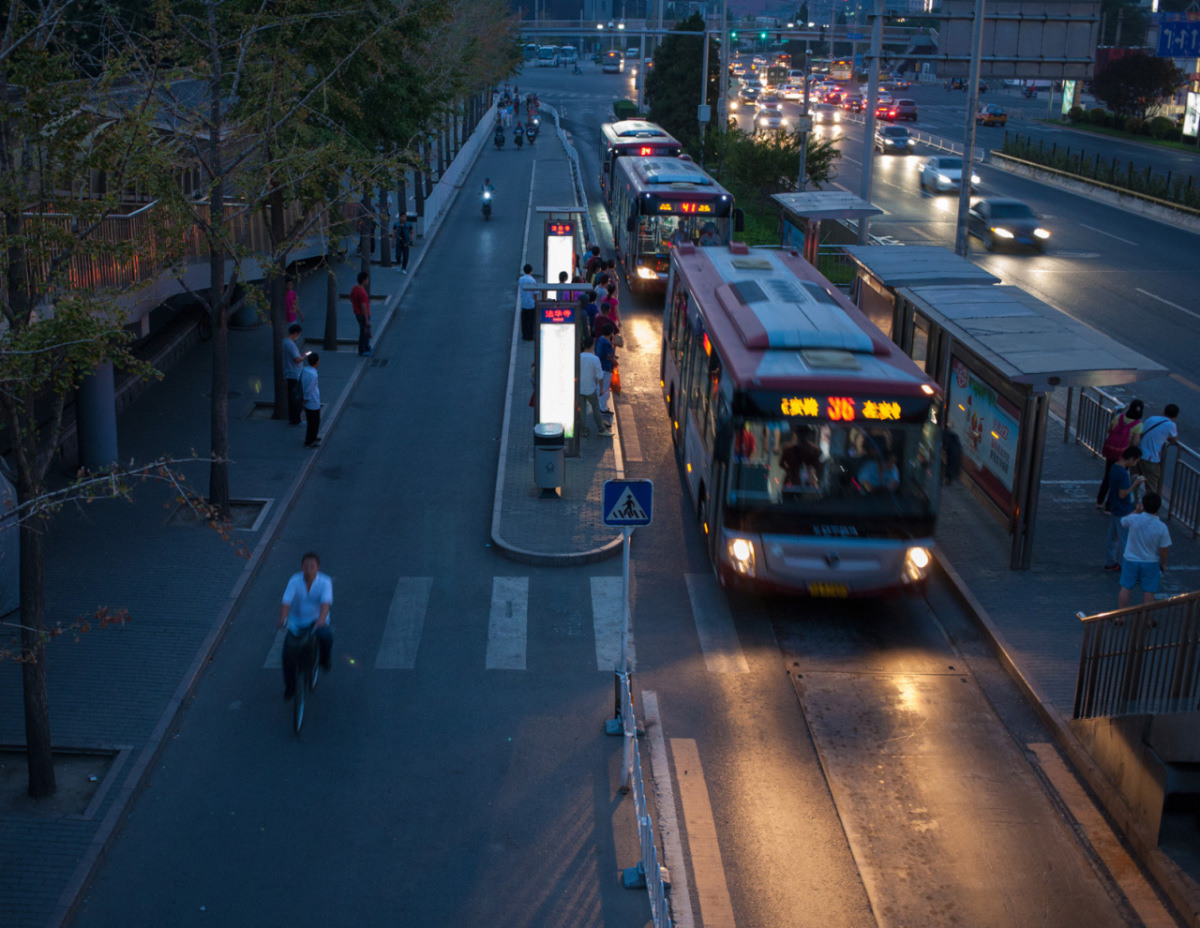
Emerging leaders
Once every few years, WRI’s emerging transportation professionals visit FedEx’s Memphis headquarters for an intensive week of learning. The FedEx Fellows program gives these young leaders access to experts across the company and to one another. One seminar focuses on improving the customer experience through the FedEx Quality Driven Management program (QDM).
WRI’s Cristina Albuquerque was one of the very first to complete the program. She saw how QDM tools could be applied to transit systems across Brazil where buses account for 90% of public transport. Successfully improving the riders’ experience meant more people would choose this lower-emissions transportation option.
Led by Albuquerque, the WRI Brazil team issued their first customer surveys in 2013. Bus service now has improved across the country, boosting ridership, increasing revenue, and expanding economic opportunity. Surveys are now mandated in Rio de Janeiro, Porto Alegre, and Salvador, benefiting 3.8 million daily riders.
Lu Lu, a 2017 FedEx Fellow, remembered the tour of e-buses during her visit to Memphis. She applied this knowledge to Shenzhen, a Chinese city preparing to launch a BRT line. After working with the MAP team for more than three years, Shenzhen electrified 100% of its bus fleet in 2019. Today, Shenzhen’s system is providing faster, cheaper, and more efficient bus service for 3.1 million riders daily and avoiding nearly 200,000 tons of CO2 annually
"Thanks to what we learned from FedEx, we are developing a thorough review of e-bus asset management and operations,” said Lu, a transport analyst for WRI China. “We’re giving cities the facts they need to give citizens the best possible transport options."
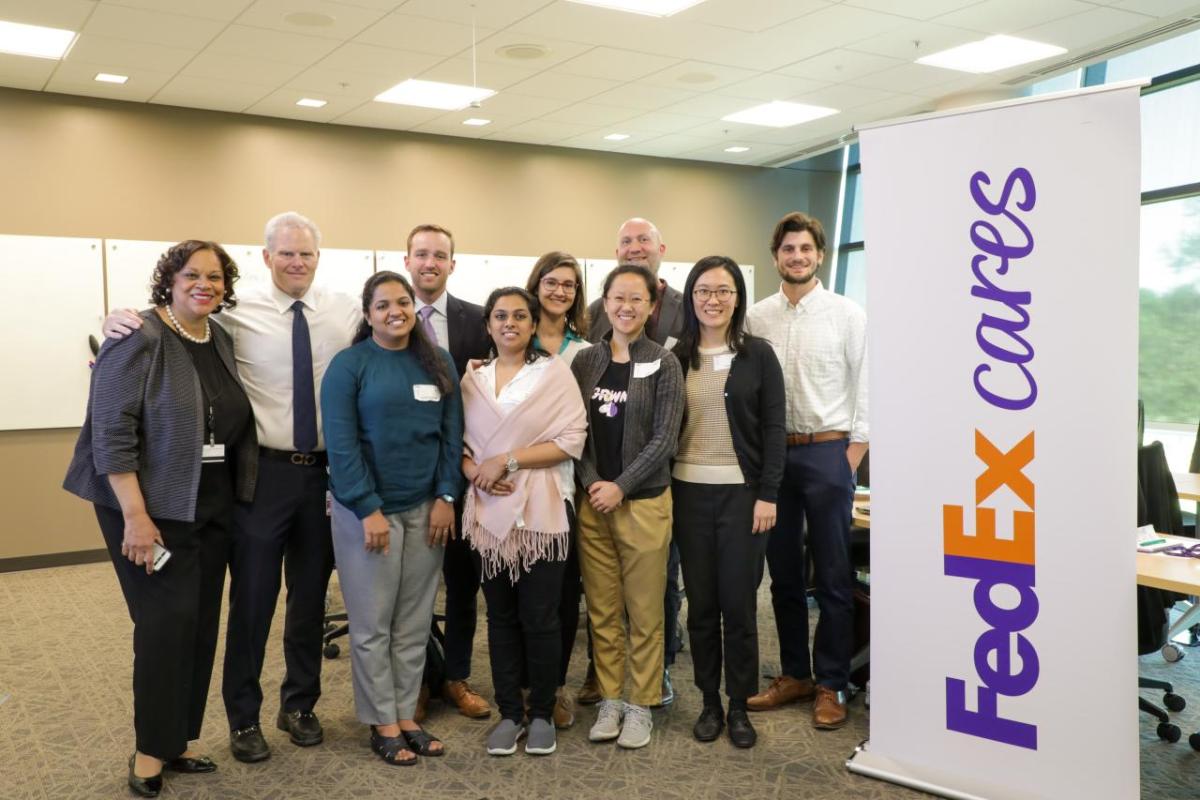
Looking ahead at a sustainable future
Across the world, cities and nations are seizing the moment and focusing on transportation as an essential component of sustainable growth. MAP’s success during the next decade will depend on their ability to catalyze change in a risk-averse industry, and they are well-placed to do so. MAP provides a laboratory for innovation, applying research to real-world problems and sharing the results with a global network. With FedEx support, WRI is committed to transforming public transport and moving the planet toward a more sustainable future.
Learn more about the FedEx-WRI Ross Center for Sustainable Cities partnership and its accomplishments over 10 years as depicted in FedEx’s 10-year report: https://www.wri.org/initiatives/mobility-and-accessibility-program
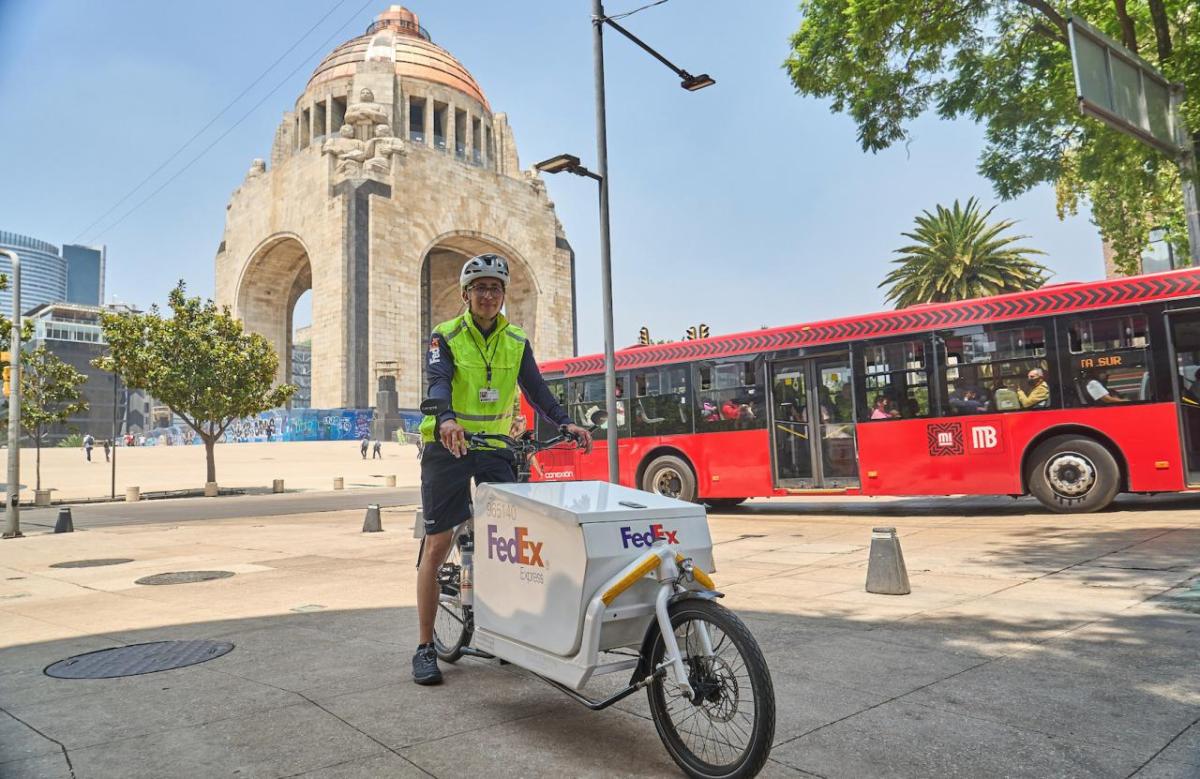

FedEx
FedEx
FedEx Corp. (NYSE: FDX) provides customers and businesses worldwide with a broad portfolio of transportation, e-commerce, and business services. With annual revenue of $88 billion, the company offers integrated business solutions utilizing its flexible, efficient, and intelligent global network. Consistently ranked among the world's most admired and trusted employers, FedEx inspires its more than 500,000 employees to remain focused on safety, the highest ethical and professional standards, and the needs of their customers and communities. FedEx is committed to connecting people and possibilities around the world responsibly and resourcefully, with a goal to achieve carbon-neutral operations by 2040. To learn more, please visit fedex.com/about.
More from FedEx

